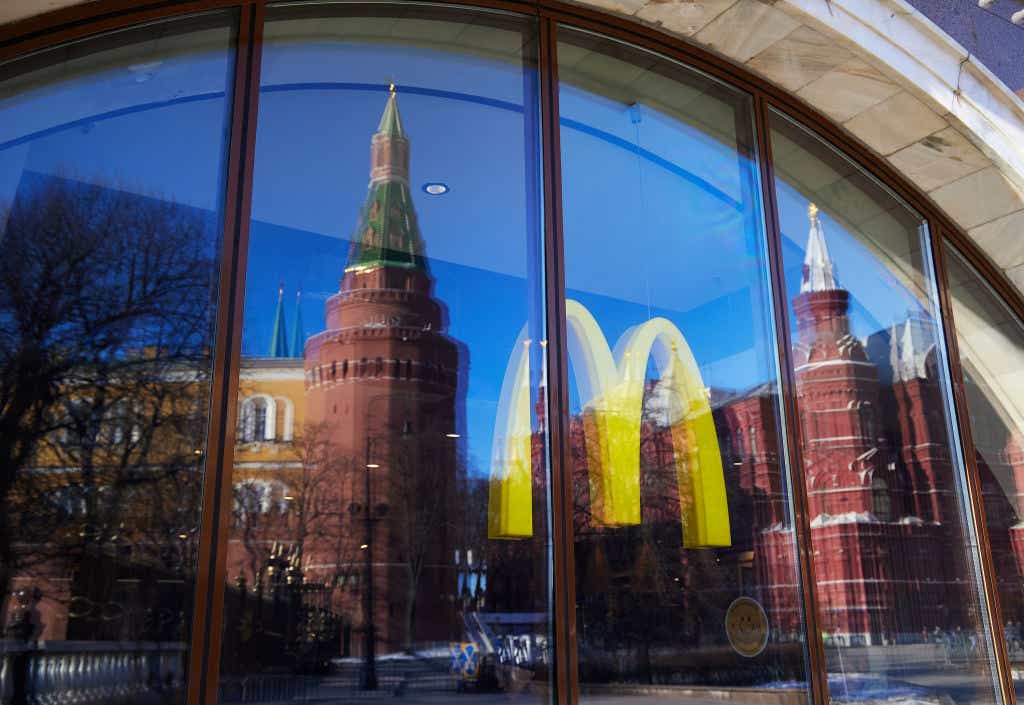You can no longer buy a Big Mac in Moscow. You can’t book a room at a Hilton, either. The list of American companies who have stopped doing business in Russia is growing by the hour.
When Russia first invaded Ukraine last month, Yale University professor Jeffrey Sonnenfeld began compiling a list of the companies that continued to operate in Russia with “significant exposure.” At that point, close to 300 corporations had pulled out, but some major chains like McDonald’s and Coca Cola remained. After the list circulated, pressure grew on companies to withdraw, nudging those two companies and a growing list of others to take a stand.
“Our list made a big difference in that the CEOs wanted to do the right thing,” Sonnenfeld told CNBC. “They kept telling me they were looking for the affirmation of others” — meaning their boards were closely monitoring the reactions of other big companies before making a decision.
Who has stopped doing business in Russia?
Goldman Sachs and JPMorgan Chase are the latest large American corporations to cease doing business in the country. The influential Wall Street firms made the announcement this week, joining a host of others to pull out of the country as its violent invasion of Ukraine continues. In addition to McDonald’s, Coca Cola, and Starbucks, Apple has closed stores, FedEx has halted all shipments to the country, and ExxonMobil announced it will halt operations in Russia.
Which companies are still operating in Russia?
Some high-profile American brands are continuing their business in the county despite the political outcry. Among them are companies including Dunkin’ Donuts, Marriott, Subway, pharmaceutical company AbbVie, and the food and beverage conglomerate Mondelez, which operates brands like Oreo and Ritz.
Will it make a difference?
Sonnenfeld told the Washington Post that once Russia invaded Ukraine, Western companies were left with very little choice. “This is a last-ditch effort. You’re helping those workers by not having [the West] dropping bombs and shooting them,” he said.
Experts say the corporate exodus will have a profound psychological impact on ordinary Russians, especially those who recall the former Soviet Union’s entree to the West and the years of isolation that preceded.
“More sober Russian observers know that Russia has failed to produce decent-quality mass consumption products. And they say, Yes, after the companies flee and we start producing things of our own, we will be consuming ‘Caca-Cola,’” Yohanan Petrovsky-Shtern, a Ukrainian native and professor of Jewish history at Northwestern told NBC.
Is the corporate exodus playing into Putin’s hands?
It’s possible. American companies’ exits from Russia has rewound the corporate landscape to resemble what it looked like at the end of the Cold War, before Moscow opened up to the West. Putin has called the end of the Soviet era the “greatest geopolitical tragedy of the 20th Century” — and it’s something he’s eager to undo. TIME has more on this phenomenon.









